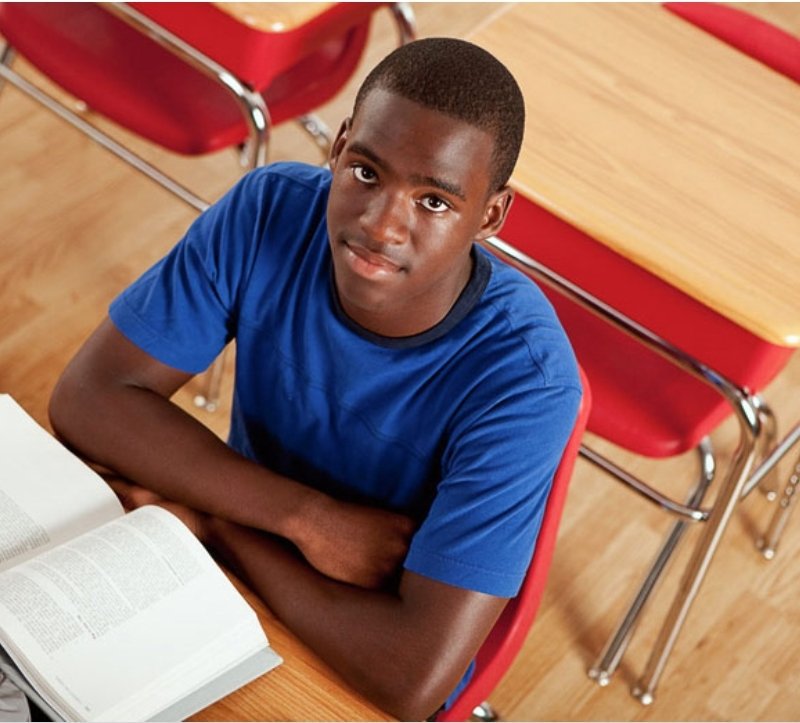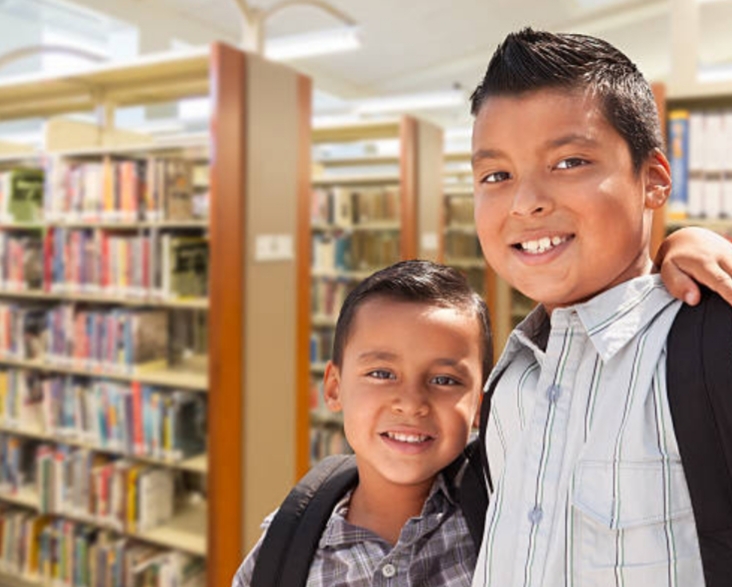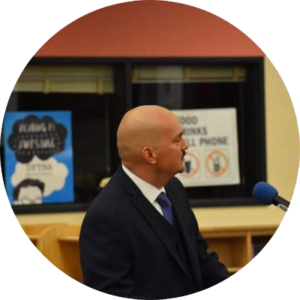
Pushed over The Edge: Maintaining One’s Motivation in the Craft of Teaching
January 22, 2019
Creating a “Farm” System for Teachers of Color: Grow Your Own Program
April 6, 2019In a hushed tone, I heard “Mr. Ryan, can I read this book again?” The junior from Montgomery Blair high school showed me a white hardcover book titled Guatemala. He had selected it from our elementary school library. The week before, he and his second grade mentee read it together.I noticed then the curiosity and questions coming from two male students of color while they read an informational text they had selected together. “Of course, learning about history is pretty cool,” I said. The high school junior sat next to his mentee, who was reading a different book this week, and they commenced reading silently, side by side in our media center.
Five years ago, a colleague presented an idea to me. She knew I was already running a mentoring program for our second grade boys. Her idea was to partner our students with high school mentors who looked like our students. The idea took off. I reached out to our neighborhood high school, Montgomery Blair in Silver Spring, Maryland. The NHE-Blair Mentoring Program was successful that year and in subsequent years has grown. The core of the program has stayed the same: Male students (mostly of color) reading together and learning through play.
Our student body at New Hampshire Estates elementary school is about 75% Latino with a Free and Reduced Meals (FARMS) rate of 85%. We are an immigrant community where we are busy preparing our young scholars to be successful global citizens. Our student’s literacy data leads their peers in multiple measures around Montgomery County Public Schools (MCPS). However, our students are not always afforded favorable expectations from society due to what they look like or what zip code they come from. False assumptions are easily placed upon them such as ”This text may be too challenging for them,” or later in life when they are just walking home from the store wearing a hoodie.
MCPS superintendent, Dr. Jack Smith, is fond of saying “access precedes achievement”. Culturally responsive educators know this to be true. There has also been documented research that male students do not typically want to read for pleasure. Dr. Paula Schwanenflugel and Dr. Nancy Flanagan wrote in the April 2018 edition of Psychology Today
“On Scholastic’s 2016 survey of over 2000 U.S. children, ages 6-17, only 52% of boys (versus 72% of girls) said they liked reading books over the summer, while only 27% of boys (versus 37% of girls) said they read books for fun at least 5 days a week. Forty-five percent of boys (versus only 36% of girls) said they often have trouble finding books they like”. Both authors also cite the 2016 Pew Research Center survey of adult reading habits. This study concluded that “women are more likely to read books than men,” and noted that 32% of men (versus only 23% of women) surveyed said that they hadn’t read a single book in the past year. (Psychology Today, Schwanenflugel and Flanagan Knapp, April 2018. https://www.psychologytoday.com/us/blog/reading-minds/201803/what-is-it-boys-and-reading)
The NHE-Blair Mentoring Program has two parts. The first part attempted to address the findings from Schwanenflugel and Flanagan’s research: getting our boys to want to read and to find pleasure in self-selecting what we call a just right book that is of interest to them. It does not matter if they wanted to read about ninjas, Batman, Cinderella or sharks. It did not matter if they read picture books, comic books or chapter books. We wanted our boys to find enjoyment in reading. The high school students would either read to their mentees or with them, side by side. Our thought was if our young male students saw high school male students who looked like them, reading with them or to them, reading overall might just secure a space in the childhood hall of fame. The high school students were not parents or teachers, they existed in that elementary stratosphere of older kid “coolness” that was bestowed upon them the minute you said “high school” to an eight year old. Even Christian, a second grader who had one of the toughest home lives I have seen in twenty three years in education, would eagerly await his high school mentor each week with a book he had already picked out for them to read together.
The second part of the NHE-Blair Mentoring Program centers on learning through play. It is not physical education class, a recreation league team or even a sports skills program. This part is more akin to playing in the park or backyard with an older brother or cousin. We usually play soccer or basketball. We start with practicing various skills with their mentor in a loose setting, then we usually run a backyard style pickup game with the mentors and mentees learning through play. As the adage goes,“You can learn more about a person’s character in an hour of play, than in a year of conversation”. Sportsmanship, teamwork and persistence are the common threads we emphasize during the athletic portion of our program.
Most of the male students in my program come recommended by staff as students who would benefit socially and/or academically from working with a positive male role model. This program also affords a positive school-based experience to our high school male students as well. Many of them have been or still are newcomers, an ESOL student or just a male student of color who needed positive school-based experiences. I smile every time I see the high school “cool” slip away as soon as a second grader runs up to them and they engage in their own special handshake. Phones rarely make an appearance.
The high school student who had read Guatemala the previous week later told me he learned some new things about his country from that book. He even showed me a new book he picked out from the library on his own. It was another book about Guatemala. I remembered seeing the book full of maps. It struck me that the young man may have been born there, may have even been back, but he still wanted to learn about the landscape of his home country. The high schooler asked me if he could read that book with his mentee, even if it wasn’t from NHE’s media center. I smiled broadly recognizing that through reading and relationships we are deconstructing a narrative that some may have for these young Latino scholars.





